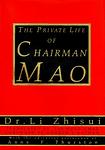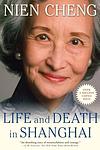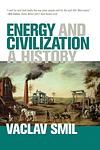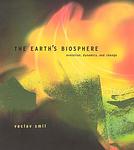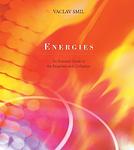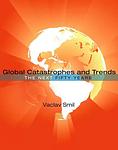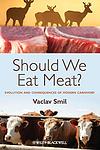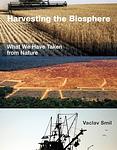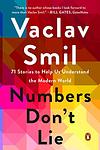The Greatest Czech, Chinese "Nonfiction" Books Since 1980
Click to learn how this list is calculated.
This list represents a comprehensive and trusted collection of the greatest books. Developed through a specialized algorithm, it brings together 300 'best of' book lists to form a definitive guide to the world's most acclaimed books. For those interested in how these books are chosen, additional details can be found on the rankings page.
Genres
Countries
Date Range
Reading Statistics
Click the button below to see how many of these books you've read!
Download
If you're interested in downloading this list as a CSV file for use in a spreadsheet application, you can easily do so by clicking the button below. Please note that to ensure a manageable file size and faster download, the CSV will include details for only the first 500 books.
Download-
1. Wild Swans: Three Daughters of China by Jung Chang
This book is a biographical account of three generations of women in China, spanning the years 1909 to 1991. The narrative follows the lives of the author's grandmother, a warlord's concubine; her mother, a high-ranking official in the Communist Party; and the author herself, who grew up during the Cultural Revolution before moving to the West. The book presents a vivid portrayal of the political and social changes in China during the 20th century, as seen through the eyes of these three women.
-
2. Living In Truth by Vaclav Havel
"Living in Truth" is a collection of essays and speeches that delve into the moral and existential struggles of living under an oppressive regime. The work explores the nature of power, truth, and individual responsibility in a society where the official narrative often contradicts reality. The author, a dissident playwright turned political leader, argues for the importance of living with integrity and maintaining a commitment to truth as acts of resistance. Through personal anecdotes and philosophical reflections, the text serves as both a critique of totalitarianism and a guide for maintaining one's humanity in the face of systemic deception and coercion.
-
3. Red Scarf Girl by Ji-li Jiang
"Red Scarf Girl" is a memoir of the author's childhood during the Cultural Revolution in China. The story follows a 12-year-old girl from a previously respected family who is labeled a class enemy and forced to turn against her own parents. The book provides a deeply personal account of the extreme political and social upheaval during this period in China's history, highlighting the fear, confusion, and courage of a young girl struggling to reconcile her loyalty to her family and her loyalty to her country.
-
4. Falling Leaves by Adeline Yen Mah
"Falling Leaves" is a heartbreaking autobiography that recounts the life of a young girl who grows up in a wealthy but abusive family in 20th century China. Despite being the daughter of a prosperous businessman, she is treated as an outcast and blamed for her mother's death, who died shortly after her birth. The story portrays her struggle for acceptance and love within her family, her journey through the cultural revolution in China, and her eventual success as a physician in the U.S. It's a poignant exploration of the themes of familial bonds, resilience, and the human spirit's ability to overcome adversity.
-
5. Chinese Cinderella by Adeline Yen Mah
This book is a memoir of a young girl growing up in China during the 1940s and 1950s. The protagonist is considered unlucky by her family after her mother dies giving birth to her. She is mistreated by her stepmother and largely ignored by her father, leading to a lonely and challenging childhood. Despite these difficulties, she finds solace in her academic achievements and her Aunt Baba's support. The story is a testament to the power of hope and perseverance in the face of adversity.
-
6. The Private Life of Chairman Mao by Li Zhi-Sui
This book is a memoir written by a personal physician who served Chairman Mao for over two decades. It offers an unprecedented and intimate look into the life and character of the powerful Chinese leader. The book reveals Mao's personal habits, manipulative nature, political maneuvers, and his disregard for human life in the pursuit of his goals. It also uncovers the power struggles within the Chinese Communist Party, providing a unique perspective on China's political history.
-
7. China Along The Yellow River by Cao Jinqing
This book provides a detailed sociological examination of rural China through the lens of villages along the Yellow River. The author, an urban intellectual, immerses himself in the daily lives of rural residents, uncovering the profound economic struggles, social changes, and the enduring traditions that define their existence. Through vivid narrative and insightful analysis, the book explores the impact of rapid industrialization and urbanization on these communities, offering a poignant look at the disparities between China's urban and rural landscapes.
-
8. Zhaun Falun by Li Hongzhi
The book in question is a comprehensive guide to a spiritual discipline rooted in Chinese tradition, offering a path to enlightenment through moral rectitude, meditation, and exercises. It outlines a philosophy centered on the principles of truthfulness, compassion, and forbearance, while also delving into cosmology, human life, and the relationship between the universe and human beings. The text serves as the foundational scripture for practitioners, providing insights into achieving spiritual advancement and understanding the deeper workings of life and the cosmos.
-
9. Life And Death In Shanghai by Nien Cheng
"Life and Death in Shanghai" is a compelling memoir by a woman who was imprisoned during China's Cultural Revolution. The narrative recounts her harrowing six-and-a-half-year experience in solitary confinement, where she was subjected to brutal interrogations and endured immense psychological and physical torment. Despite the harsh conditions, she maintained her innocence and resisted the pressures to confess to false charges of espionage. The book not only provides a personal account of survival and resilience but also serves as a poignant critique of the political turmoil and ideological fanaticism that characterized the era, offering deep insights into the cultural and historical context of the time.
-
10. Energy by Vaclav Smil
This book provides a comprehensive exploration of energy in its various forms, tracing its role throughout human history. The author delves into the science of energy, from the muscle power of prehistoric humans to the modern era's reliance on fossil fuels and the potential of renewable sources. With a focus on the environmental and societal impacts of energy consumption, the narrative emphasizes the importance of sustainable energy practices. Through a blend of historical context, scientific analysis, and a look at current energy challenges, the book offers a deep understanding of the essential role energy plays in shaping civilizations and the urgent need for a more efficient and environmentally friendly approach to energy use.
-
11. The Earth's Biosphere by Vaclav Smil
This book provides a comprehensive overview of the Earth's biosphere, exploring the complexity and resilience of life on our planet. It delves into the intricate relationships between the biosphere's various components, including ecosystems, organisms, and the physical environment, while also examining the impact of human activities on these natural systems. The author synthesizes a vast array of scientific knowledge to present a detailed yet accessible understanding of how the biosphere functions, its evolutionary history, and the critical challenges it faces in the modern era. Through this exploration, the book highlights the importance of sustainable practices to preserve the delicate balance of life on Earth for future generations.
-
12. Creating The Twentieth Century by Vaclav Smil
This book provides a comprehensive analysis of the technical innovations and scientific discoveries that fundamentally transformed the 20th century, laying the groundwork for modern society. It delves into the period from 1867 to 1914, which the author identifies as crucial years when core technologies such as electricity, the internal combustion engine, and basic chemical processes were developed. These innovations, the book argues, set the stage for the unprecedented economic growth and improvement in human well-being that characterized the 20th century. Through a detailed examination of the interplay between technological advancement and societal change, the narrative explores how these foundational developments have shaped the contemporary world, highlighting both the positive outcomes and the challenges they have brought.
-
13. Energies by Vaclav Smil
This book provides a comprehensive exploration of the various forms of energy that power the planet, from traditional fossil fuels to renewable sources like wind and solar power. The author delves into the scientific principles underlying energy conversion, storage, and transmission, offering insights into the complexities of energy systems and their impacts on the environment and society. Through a detailed analysis, the book presents a balanced view on the challenges and opportunities of transitioning to a more sustainable energy future, emphasizing the need for informed policy decisions and technological innovations.
-
14. Global Catastrophes And Trends by Vaclav Smil
This book provides a comprehensive analysis of the major natural and human-induced disasters and trends that have the potential to significantly alter the course of human civilization. It delves into a wide array of topics, from environmental degradation and climate change to the risks of nuclear warfare and pandemics, offering a detailed examination of their causes, impacts, and the likelihood of their occurrence. The author meticulously assesses the probability and severity of these global challenges, combining scientific research with historical context to evaluate how they might shape the future. Through a blend of rigorous analysis and insightful commentary, the book aims to enhance our understanding of the complex dynamics that govern our world and the potential pathways to mitigate these global risks.
-
15. Energy Myths And Realities by Vaclav Smil
In "Energy Myths and Realities," the author critically examines the widespread misconceptions surrounding energy and its future. Through a rigorous analysis of data and trends, the book debunks popular myths about the potential of renewable energy sources, the pace of energy transitions, and the feasibility of achieving rapid changes in energy systems. It emphasizes the complexity of energy production and consumption, arguing for a more nuanced understanding of energy realities. The author advocates for realistic expectations and pragmatic approaches to energy policy and innovation, cautioning against the dangers of oversimplification and the allure of quick fixes in the discourse on energy sustainability and security.
-
16. Energy Transitions by Vaclav Smil
This book provides a comprehensive analysis of the historical shifts in energy sources and consumption patterns, from traditional biomass to fossil fuels and the potential future transition to renewable energy sources. It examines the technological, economic, and environmental challenges associated with these energy transitions, emphasizing the complexity and duration of these shifts. The author argues that while transitions to more efficient and less environmentally damaging energy sources are necessary, they will be gradual and require significant technological innovations and societal adaptations. Through a detailed exploration of past and present energy systems, the book offers insights into the future of global energy consumption and the path towards a more sustainable energy landscape.
-
17. Should We Eat Meat? by Vaclav Smil
This book provides a comprehensive examination of the role of meat in human diets and its impact on health, the environment, and society. It delves into the history of meat consumption, explores the ethical considerations surrounding animal farming, and analyzes the environmental consequences of meat production, including greenhouse gas emissions and land use. The author presents a balanced view, weighing the nutritional benefits of meat against its ecological footprint and considering sustainable alternatives. Through a detailed and scientific approach, the book encourages readers to ponder the complex question of whether the consumption of meat is justifiable in the modern world, offering insights into possible future directions for global dietary practices.
-
18. Harvesting The Biosphere by Vaclav Smil
This book provides a comprehensive examination of the human impact on Earth's biosphere, focusing on the extraction and exploitation of biological resources. It delves into historical and contemporary practices of harvesting plants and animals for food, fuel, and raw materials, quantifying the scale and intensity of these activities. The author meticulously analyzes how these practices have evolved over time and assesses their sustainability and environmental consequences. By offering a detailed account of the biosphere's transformation under human influence, the book presents a critical perspective on the limits of resource utilization and the urgent need for adopting more sustainable practices to ensure the long-term viability of our planet's ecosystems.
-
19. Stay True by Hua Hsu
"Stay True" by Hua Hsu is a collection of essays that explore the intersections of race, culture, and identity in America. Through personal anecdotes and cultural analysis, Hsu examines the ways in which popular culture and media shape our understanding of race and identity, and how individuals navigate these complex and often contradictory narratives. From the rise of Asian American representation in Hollywood to the legacy of Michael Jackson, "Stay True" offers a nuanced and thought-provoking exploration of the cultural landscape of America.
-
20. Energy And Civilization by Vaclav Smil
This book provides a comprehensive examination of the role that energy has played in the development of human societies, from the harnessing of fire by early humans to the complex energy grids of the 21st century. It explores how the transformation and consumption of energy have been pivotal in the advancement of civilizations, underpinning economic systems, technological progress, and the rise and fall of empires. The author meticulously analyzes the transition from muscle power to fossil fuels and renewable energy sources, highlighting the environmental and societal impacts of our growing energy demands. Through a detailed historical and scientific lens, the narrative underscores the critical importance of energy management in addressing current global challenges, advocating for a more sustainable and efficient future.
-
21. Numbers Don't Lie by Vaclav Smil
In "Numbers Don't Lie," the author presents a compelling exploration of the essential statistics and facts that shape our understanding of the modern world. Through a series of insightful essays, the book delves into a wide range of topics, from energy and transportation to food production and environmental challenges. By analyzing data and debunking common misconceptions, the work offers readers a nuanced perspective on the complexities of technological advancement and its impacts on society. The author's rigorous approach to quantifying human progress and setbacks encourages a deeper appreciation for the role of empirical evidence in public discourse, making it a thought-provoking read for anyone interested in the interplay between science, technology, and culture.
-
22. Red Memory by Tania Branigan
"Red Memory" delves into the complex legacy of Mao Zedong's rule in China, exploring how it continues to shape the nation's identity and politics. Through personal stories and interviews, the book uncovers the deep and often conflicting emotions of Chinese citizens who lived through the tumultuous periods of the Great Leap Forward and the Cultural Revolution. The narrative reveals a society grappling with its past, where personal memories of suffering, resilience, and ideological fervor coexist with a state-driven narrative that both reveres and selectively forgets aspects of its own history. This exploration highlights the challenges of reconciling individual trauma with collective memory and the ongoing impact of Mao's era on contemporary China.
Reading Statistics
Click the button below to see how many of these books you've read!
Download
If you're interested in downloading this list as a CSV file for use in a spreadsheet application, you can easily do so by clicking the button below. Please note that to ensure a manageable file size and faster download, the CSV will include details for only the first 500 books.
Download




